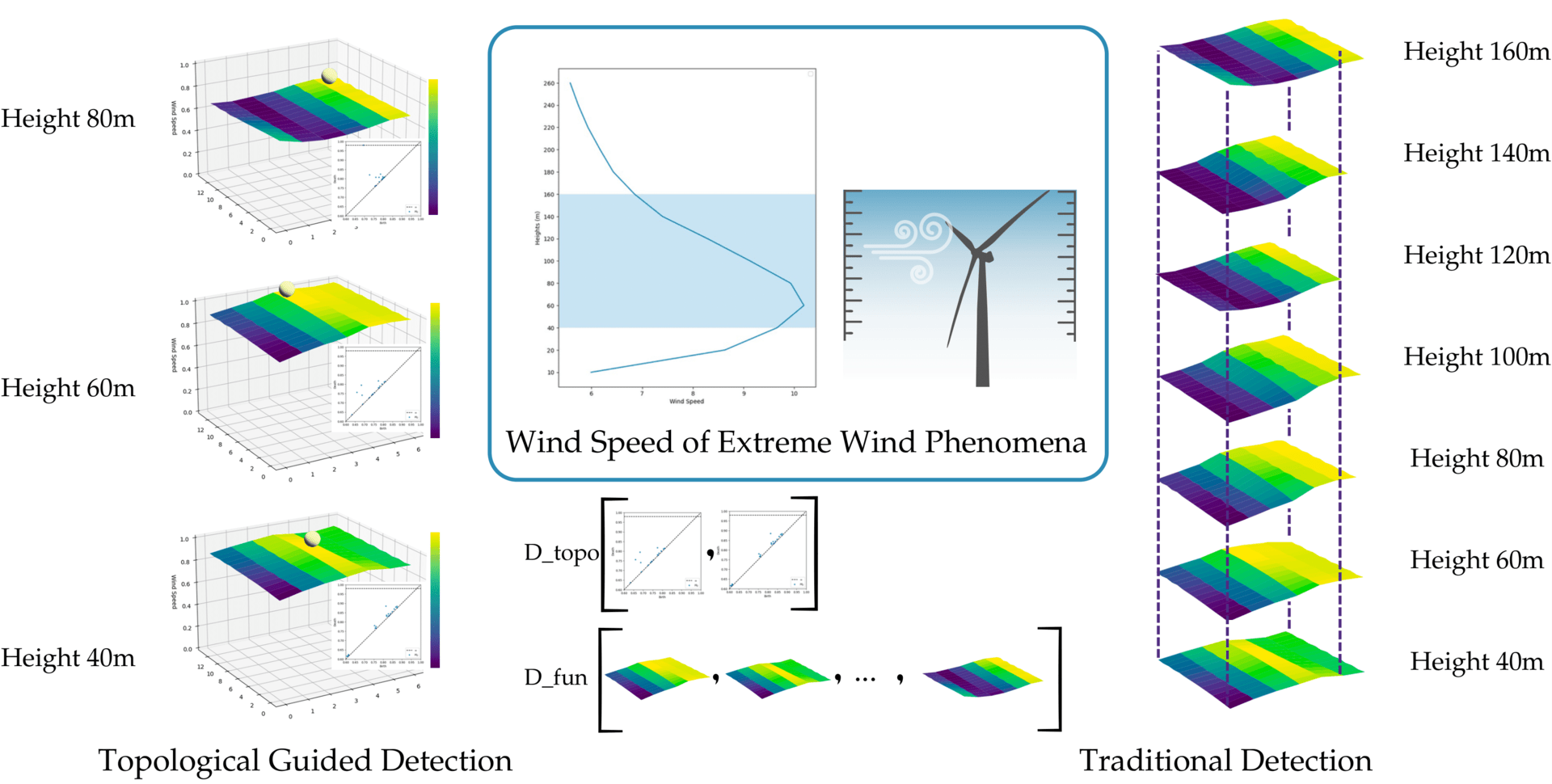Topological Guided Detection of Extreme Wind Phenomena: Implications for Wind Energy
Yu Qin, Graham Johnson, Brian Summa
Room: 103
2023-10-21T22:00:00ZGMT-0600Change your timezone on the schedule page
2023-10-21T22:00:00Z

Abstract
Extreme wind phenomena play a crucial role in the efficient operation of wind farms for renewable energy generation. However, existing detection methods are computationally expensive, limited to specific coordinate. In real-world scenarios, understanding the occurrence of these phenomena over a large area is essential. Therefore, there is a significant demand for a fast and accurate approach to forecast such events. In this paper, we propose a novel method for detecting wind phenomena using topological analysis, leveraging the gradient of wind speed or critical points in a topological framework. By extracting topological features from the wind speed profile within a defined region, we employ topological distance to identify extreme wind phenomena. Our results demonstrate the effectiveness of utilizing topological features derived from regional wind speed profiles. We validate our approach using high-resolution simulations with the Weather Research and Forecasting model (WRF) over a month in the US East Coast.